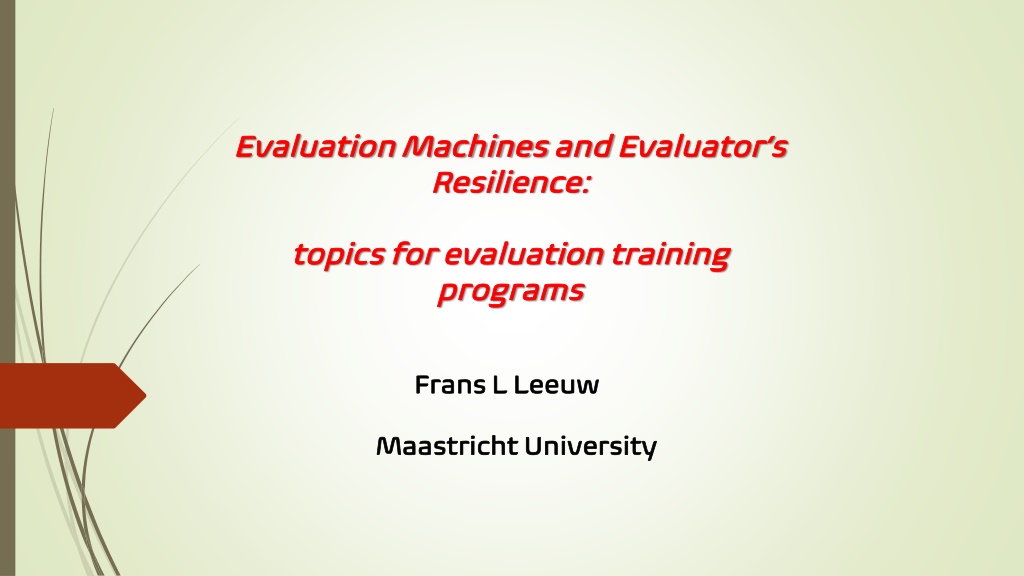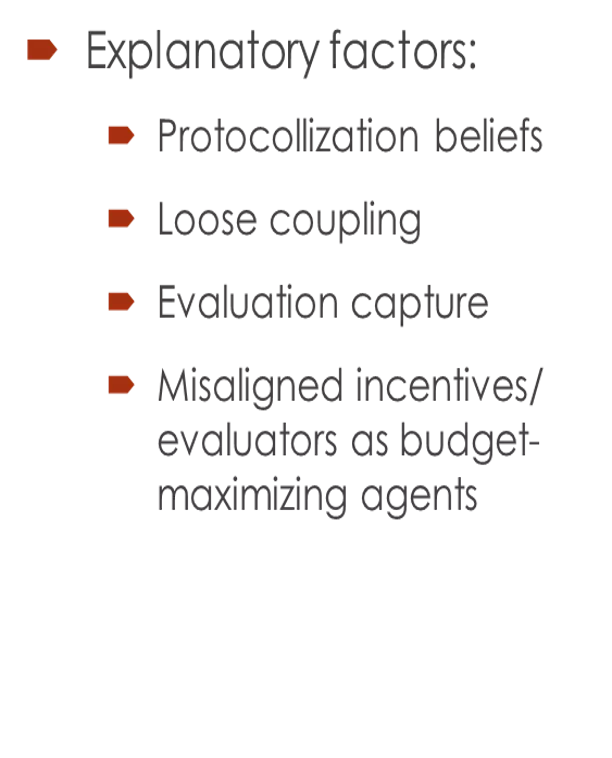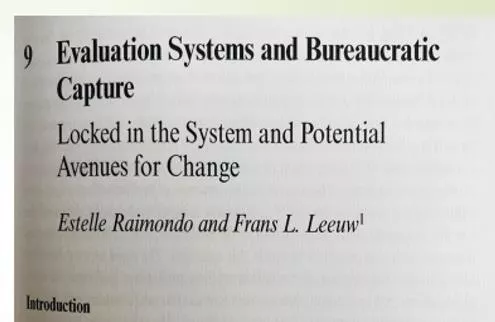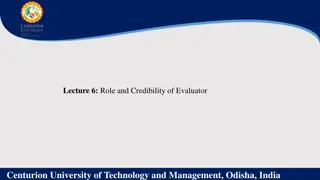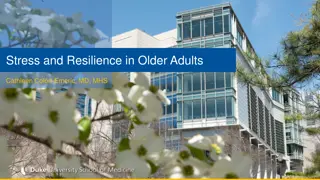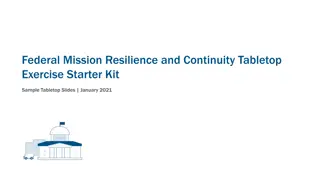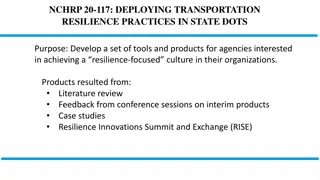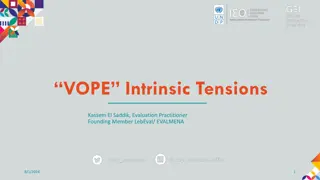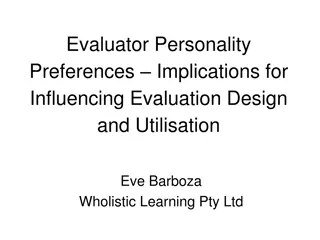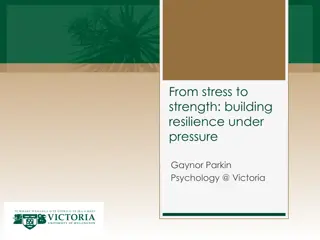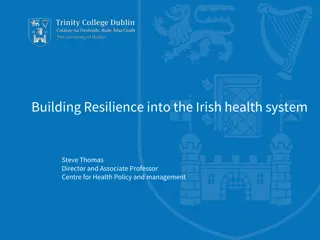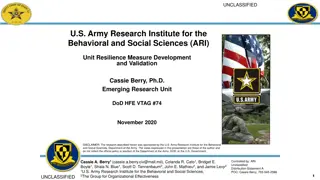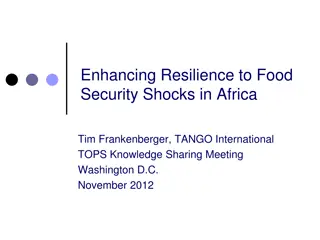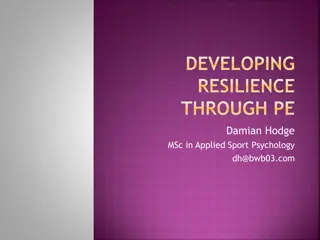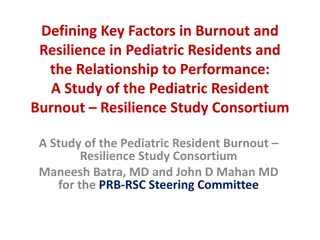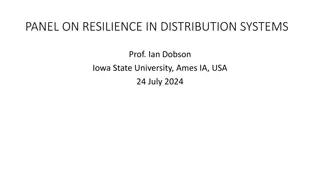Insights into Building Evaluator Resilience for Effective Evaluation Programs
Explore topics on evaluator resilience, incorporating training insights, and the importance of ethical-behavioral approaches in evaluation. Understand the challenges, paradoxes, and strategies for building resilience to navigate complexities in evaluation practice. Learn from examples of insufficient evaluator resilience and ways to enhance professional competency in evaluation contexts.
- Evaluator Resilience
- Training Programs
- Ethical Behavior
- Evaluation Challenges
- Professional Development
Download Presentation

Please find below an Image/Link to download the presentation.
The content on the website is provided AS IS for your information and personal use only. It may not be sold, licensed, or shared on other websites without obtaining consent from the author. Download presentation by click this link. If you encounter any issues during the download, it is possible that the publisher has removed the file from their server.
E N D
Presentation Transcript
Evaluation Machines Evaluation Machines and and Evaluator s Evaluator s Resilience Resilience: : topics topics for for evaluation evaluation training programs programs training Frans L Leeuw Frans L Leeuw Maastricht University Maastricht University
TOPIC 1 TOPIC 1 1 evaluation as a standing operating procedure, evaluation machines, evaluiitis; and performance paradoxes; Examples of success breeding its own failures
Incorporating Incorporating these training programs training programs these insights insights into into evaluation evaluation Learning Learning to place place Discuss Discuss and Think Think about Be Be resilient resilient to scan scan when when these trends take these trends take and assess assess these trends these trends and about how how to to fight fight them and factors factors them
TOPIC 2 TOPIC 2 Resilience is not only a cognitive-intellectual thing , but an in depth ethical-behavioral approach /style of evaluators of strength in the face of organizational difficulties, stress, (soft) power plays etc., to fight and bounce back which helps the profession to realize goals such as: Collaborate with stakeholders / commissioners while also fundamentally challenge and criticize them; Being able to navigate between the demands of evaluation clients and the needs of a valid and credible scientific perspective in the evaluation; Knowing how to deal with fake-news, cancel culture and fake handbags ( like selling Logframes for ToC s).
Examples Examples of of an an insufficient insufficient or or limited limited evaluator s evaluator s resilience resilience Doing Doing thousands thousands and studies studies finding finding over but continue but continue doing and thousands thousands of over and and over over similar doing them them because of implementation implementation (failure) similar blunders, blunders, flaws because this this is is requested requested and (failure) and fiasco s fiasco s and paid paid for flaws and for; ; Claiming Claiming to while while in to work work and in fact fact believing believing them and test test theories them and theories of change/ program of change/ program theories and search search for for verifications verifications; ; theories Accepting Accepting a stream of Say a stream of Say- -do governments governments, , agencies do- -behaviors behaviors by NGO s etc etc by Parliaments Parliaments, , agencies, , NGO s
In these kind of situations, a resilient evaluator is a person who has the willpower to loud and clear criticize that type of behavior, understands its causes and may suggest alternative ways to move forward, but with the possible consequence that he or she will be become a Persona non Grata. But, if we do not train our evaluators how to deal with these challenges, we may end up producing Harmless armless WallPaper and/or Elevator Music and/or Elevator Music. WallPaper
Some references Lyn Pleger & Frans L Leeuw, Resilient Evaluators: Characteristics, conditions and prospects, in: Rob van den Berg et al (eds), Ethics for Evaluation. Beyond doing no harm to tackling bad Ethics for Evaluation. Beyond doing no harm to tackling bad and doing good and doing good . Routledge, in press: chapter 7. Estelle Raimondo & Frans L. Leeuw, Evaluation Systems And Bureaucratic Capture: Locked In The System And Potential Avenues For Change, in: Burt Perrin & Tony Tony Tyrrell (eds), Bureaucracy and Evaluation, Bureaucracy and Evaluation, Routledge, 2020, p.143-160. P.Dahler-Larson, The skeptical turn in evaluation, in: J.E.Furubo & N. Stame (eds), The Evaluation Enterprise Evaluation Enterprise, Routledge, 2018, p. 58-80. The Sandra van Thiel & Frans L. Leeuw, The Performance Paradox in the Public Sector, in: Public Performance & Management Review Performance & Management Review, 25, 3 (2002), p. 267-281, Public Frans L Leeuw and JE Furubo, Evaluation Systems: What Are They and Why Study Them, in: Evaluation Evaluation, 14 (2) (2008), p.157 169
